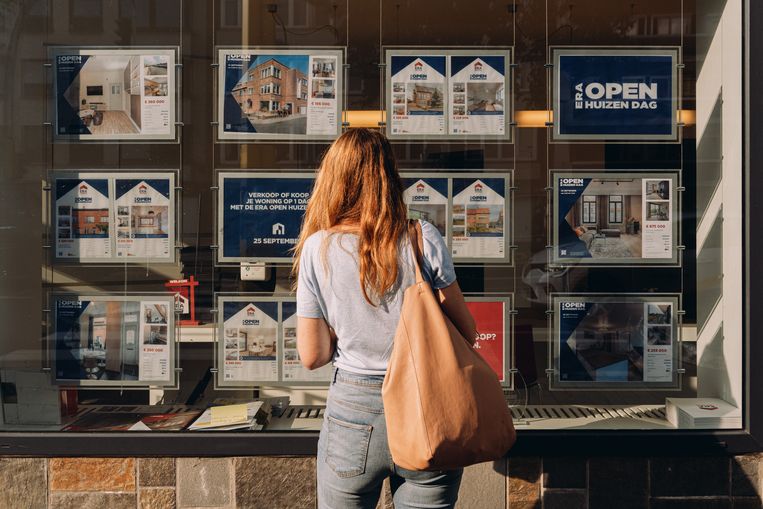Belgians are the richest citizens in the world: with approximately $250,000 or 229,000 euros, the average wealth is not as high as anywhere else. This is according to a leading report.
In fact, the Belgians are very rich. This is the main conclusion of the latest edition of the leading global wealth report by the Swiss bank Credit Suisse, which was acquired by rival UBS this year.
Each year, the authors of this report calculate and average the average wealth for almost all countries in the world. An important side note is that small countries like Luxembourg and Monaco are excluded from the calculation because, according to the bank, they would distort the picture too much.
The average wealth in Belgium is $352,810 (€323,384), good for 11th in the world. Median wealth equals the total wealth of a country divided by all adults. Because averages can be quite skewed by outliers—a billionaire raises this average more than someone who doesn’t own a home and takes a living wage—the authors also look at median wealth. This divides the population into two equal groups. It applies specifically to our country: half of Belgians have more than $250,000 (about 229,000 euros), and the other half have less.
Although our average wealth is down to $7,860 from last year, we made the jump to Australia for the first time. Economists Peter Vanden Hout (ING) and Tom Symonts (KBC) point out the importance of exchange rates in the calculation. “This is mainly due to the weakness of the Australian dollar against the US dollar, which the authors use in the calculation,” Simonts says.
On the other hand, it is not surprising that Belgians have such a high average wealth. “If we look at the Household Finance and Consumption Survey (HFCS) that has been conducted by the European Central Bank (ECB) four times already, we see very similar results,” says Vanden Houte. There are some differences – the calculations are done in euros not dollars, per family rather than per adult – and the result is more or less the same. After Luxembourg and Malta, which Credit Suisse did not take into account, Belgian families seem to be the richest in Europe.
a brick in the stomach
This has a number of reasons that all interact: the automatic wage index, the bedrock in the stomach of the Belgians, and our own huge piggy bank. For example, last year in particular, indices helped protect many Belgians from high inflation.
Furthermore, real estate is a major explanation for the Belgians’ soaring wealth. Credit Suisse counts all cash, investments and real estate, minus debt, as assets. About 70 percent of all Belgians own a house or apartment. This is simply more than in many other countries. If we take into account only the average net income, six countries in Europe (Switzerland, Luxembourg, Denmark, Holland, Ireland and Austria) are ahead of us. “If we look at real estate, we see that many Belgians have benefited from high inflation,” says Simonets. Mortgage loans remained unchanged in nominal terms but were eroded by inflation. At the same time, real estate values have risen sharply over the past ten years.”
“By housing reward (A favorable tax measure that was repealed in 2020, PG“The government has once again encouraged citizens to buy a home,” says Arne Maes, an economist at BNP Paribas. “And cultural factors also play a role: the reaction to conservation is really ingrained in the Belgians, for example.”
Public Finance
The comment every economist makes: It is the citizens who build such a bank, not our government. “When we talk about wealth and wealth, we must also include the health of public finances,” says Vanden Houte. It is often said that Belgium has a rich population, but it is a poor country. Indeed, according to some economists, the two are communicating vessels, that is, citizens are laying a nest egg because they feel that the government is not doing it for them.
With an average wealth of $143,890, Norway, for example, ranks well below Belgium in the ranking. But this is without taking into account the high state pensions, state gas revenues, and the National Wealth Fund in which every Norwegian has a share.
Finally, it is striking how much closer the mean and median wealth in our country are to each other than it is in many other countries. National debt or not, the government and our social security system play an important role in that. An important measure in this is the difference in the Gini coefficient (A measure for the expression of inequality, PG) before and after government intervention,” says Mace. “The closer this coefficient is to zero, the lower the inequality. According to the latest pre-corona figures, as of 2019, government intervention in Belgium has caused the coefficient to decrease by 0.23 to 0.26. Only Finland does the best with a decrease of 0.24″.
“For all the caveats we can give, with its advanced welfare state and high taxes, wealth is distributed more evenly in Belgium than in other countries,” says Vanden Hout.

“Total coffee specialist. Hardcore reader. Incurable music scholar. Web guru. Freelance troublemaker. Problem solver. Travel trailblazer.”







More Stories
Bitcoin price rises after new jobs data from US
European stock markets open higher | beursduivel.be
Russia’s oil imports to China decline